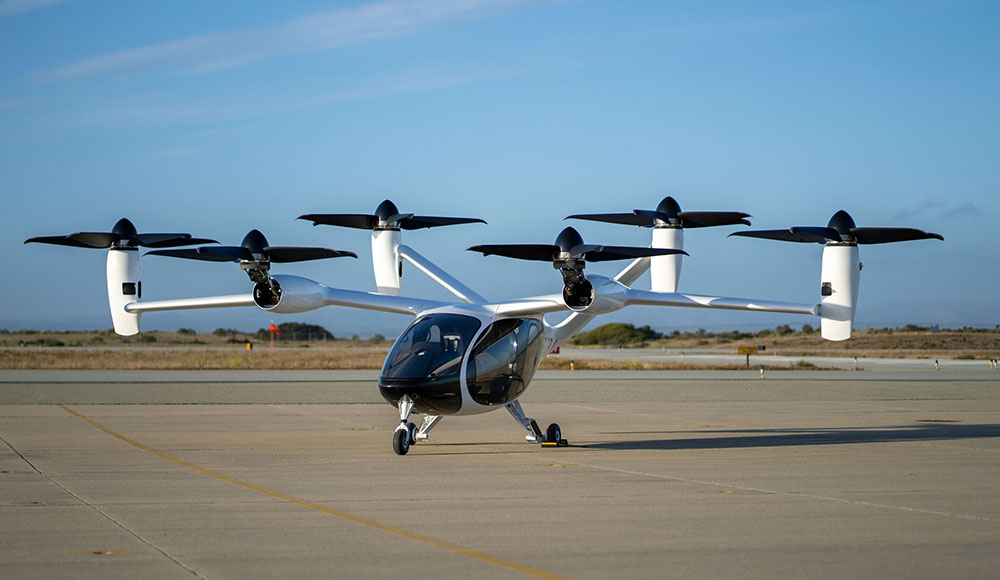Santa Cruz’s Joby set to lead air taxi takeoff
A new form of flight is taking off in Santa Cruz.
Transportation secretary Sean P. Duffy has announced that companies will now be allowed to test limited operations of electric vertical takeoff and landing aircraft—air taxis that lift off like helicopters but cruise like airplanes—before they are fully certified by the FAA. The pilot program is intended to accelerate adoption of what’s often called “advanced air mobility.”
Santa Cruz–based Joby Aviation is one of the companies ready to seize the opportunity.
“We’ve spent more than 15 years building the aircraft technology and operational capabilities that are defining advanced aerial mobility, and we’re ready to bring our services to communities,” said Greg Bowles, Joby’s Chief Policy Officer. “This program provides a clear and pragmatic path to introduce our service sooner, while continuing to meet the FAA’s rigorous safety standards.”
The FAA normally requires years of rigorous testing and approval before any new aircraft can operate commercially. No aircraft like Joby’s has yet been certified, and the first such approval is not expected for at least another year. The new program creates a bridge, letting mature designs begin real-world flights—whether carrying passengers, cargo, or providing emergency services—under strict oversight while certification continues.
Joby’s prototypes are designed to carry a handful of passengers or small cargo loads, beating traffic while producing zero operating emissions. The company has already logged tens of thousands of miles in testing, including nearly six hundred flights this year alone. It has flown in extreme environments to demonstrate durability, and is currently in the fourth of five stages of FAA type certification. Joby expects to fly its first FAA-conforming aircraft later this year, with FAA pilots onboard early next year.
Santa Cruz has been home to Joby from the beginning, bringing together engineers, designers, and builders, making this new form of transportation possible. Close to home, Joby has scaled up operations in Marina, expanding its manufacturing footprint to more than 435,000 square feet and preparing to build what it describes as the first scaled electric aircraft production facility in the United States.
For Santa Cruz, the implications reach beyond aerospace headlines. Advanced air mobility could translate into hundreds of local jobs, new investment in infrastructure, and a reputation as the birthplace of a new transportation industry. It also positions the region alongside Silicon Valley in pioneering technologies with global impact.
Challenges remain—certification is ongoing, air traffic integration and community acceptance are far from simple, and scaling production will be costly—but once again, Santa Cruz is not just watching the future take shape. It may soon be the place where the age of air taxis truly takes off.











